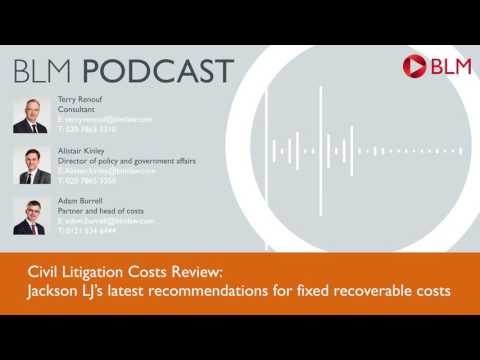
Understanding Recoverable Costs in Litigation: A Comprehensive Overview
Welcome, dear reader, to this informative article that aims to shed light on the intriguing world of recoverable costs in litigation. Before we delve into the details, it is important to note that while this article aims to provide a comprehensive overview, it should not be considered a substitute for consulting other reliable sources or seeking advice from legal professionals. Law is a complex and ever-evolving field, and it is always wise to cross-reference information.
Now, let’s embark on our journey to unravel the mysteries of recoverable costs in litigation. But first, what exactly are recoverable costs? In the realm of legal proceedings, recoverable costs refer to the expenses that a successful party may be entitled to recover from the opposing party. These costs can include a wide range of items, such as court fees, document production expenses, expert witness fees, and even certain travel expenses.
📋 Content in this article
It is important to note that recoverable costs are not automatically awarded to the prevailing party in a lawsuit. The court has the discretion to determine which costs are reasonable and necessary and, therefore, should be reimbursed. This exercise of discretion ensures that recoverable costs are allocated fairly and in accordance with the principles of justice.
To provide further clarity, here are some key points to keep in mind when it comes to recoverable costs in litigation:
Understanding Recoverable Legal Costs in the United States
Understanding Recoverable Costs in Litigation: A Comprehensive Overview
When entering into a legal battle, it is important to consider the potential costs associated with litigation. These costs can quickly add up and become a significant financial burden. However, it is essential to understand that in the United States, prevailing parties in a lawsuit may be entitled to recover certain costs incurred during the litigation process. This article aims to provide a comprehensive overview of the concept of recoverable costs in litigation.
What are Recoverable Costs?
Recoverable costs refer to the expenses that a prevailing party may be awarded by the court as part of their legal victory. These costs are intended to reimburse the prevailing party for the expenses they incurred while pursuing or defending a lawsuit. It is important to note that recoverable costs are separate from attorney’s fees, which are typically not available unless expressly provided for by statute or contract.
Types of Recoverable Costs
1. Court Filing Fees: When initiating a lawsuit, a party is required to pay filing fees to the court. If the party prevails, these fees are generally recoverable.
2. Service of Process Fees: In order to properly serve the opposing party with legal documents, fees may be incurred. These fees can include costs associated with process servers or certified mail. If the prevailing party can demonstrate that these fees were necessary and reasonable, they may be recoverable.
3. Witness Fees and Expenses: If witnesses were called to testify during the litigation process, the prevailing party may be entitled to recover their fees and expenses. This can include compensation for their time, travel expenses, and accommodations.
4. Copying and Printing Costs: Litigation often involves a substantial amount of document preparation, including copying and printing materials such as pleadings, exhibits, and discovery documents.
Understanding the Various Types and Examples of Litigation Costs in US Law
Understanding Recoverable Costs in Litigation: A Comprehensive Overview
In the United States legal system, litigation is the process of resolving disputes through the court system. Whether you are a plaintiff or a defendant, it is important to understand the various types and examples of litigation costs that may be incurred during the course of a lawsuit.
Litigation costs can be broadly categorized into two main types: attorney fees and other expenses. Attorney fees are the fees charged by your legal counsel for their services, while other expenses include a range of costs necessary to litigate a case. It is important to note that not all litigation costs are recoverable, meaning that you may not be able to recover them even if you win your case.
To provide a comprehensive overview, let’s examine some common examples of recoverable costs in litigation:
1. Filing Fees: When initiating a lawsuit, the plaintiff is required to pay a filing fee to the court. This fee covers the administrative costs associated with processing the case. In some instances, the filing fee may be waived if the plaintiff qualifies for indigent status.
2. Service of Process: Once a lawsuit has been filed, the plaintiff must formally notify the defendant(s) of the legal action. This typically involves hiring a process server or sheriff to serve the necessary documents. The costs associated with this service are generally recoverable.
3. Court Costs: Throughout the litigation process, there are various court-related expenses that may arise. These can include fees for court reporters, transcripts, copies of documents, and other administrative expenses. In most cases, these costs can be recovered if they are deemed necessary and reasonable.
4. Expert Witness Fees: In complex cases, parties may need to retain expert witnesses to provide specialized knowledge or opinions. The fees charged by these experts for their time and expertise are generally recoverable, but they must be reasonable and necessary to the case.
5
Title: Understanding Recoverable Costs in Litigation: A Comprehensive Overview
Introduction:
Litigation is an essential aspect of the legal system, providing a means for resolving disputes through the court process. In any litigation, there are various costs incurred by parties involved, including attorney fees, court filing fees, expert witness fees, and other expenses. Understanding recoverable costs in litigation is crucial for both lawyers and individuals navigating the legal system. This article aims to provide a comprehensive overview of recoverable costs in litigation, underlining the importance of staying current on this topic.
Importance of Staying Current on Recoverable Costs:
1. Evolving Legal Landscape:
2. Cost Management:
3. Protecting Client’s Interests:
4. Ethical Obligations:
